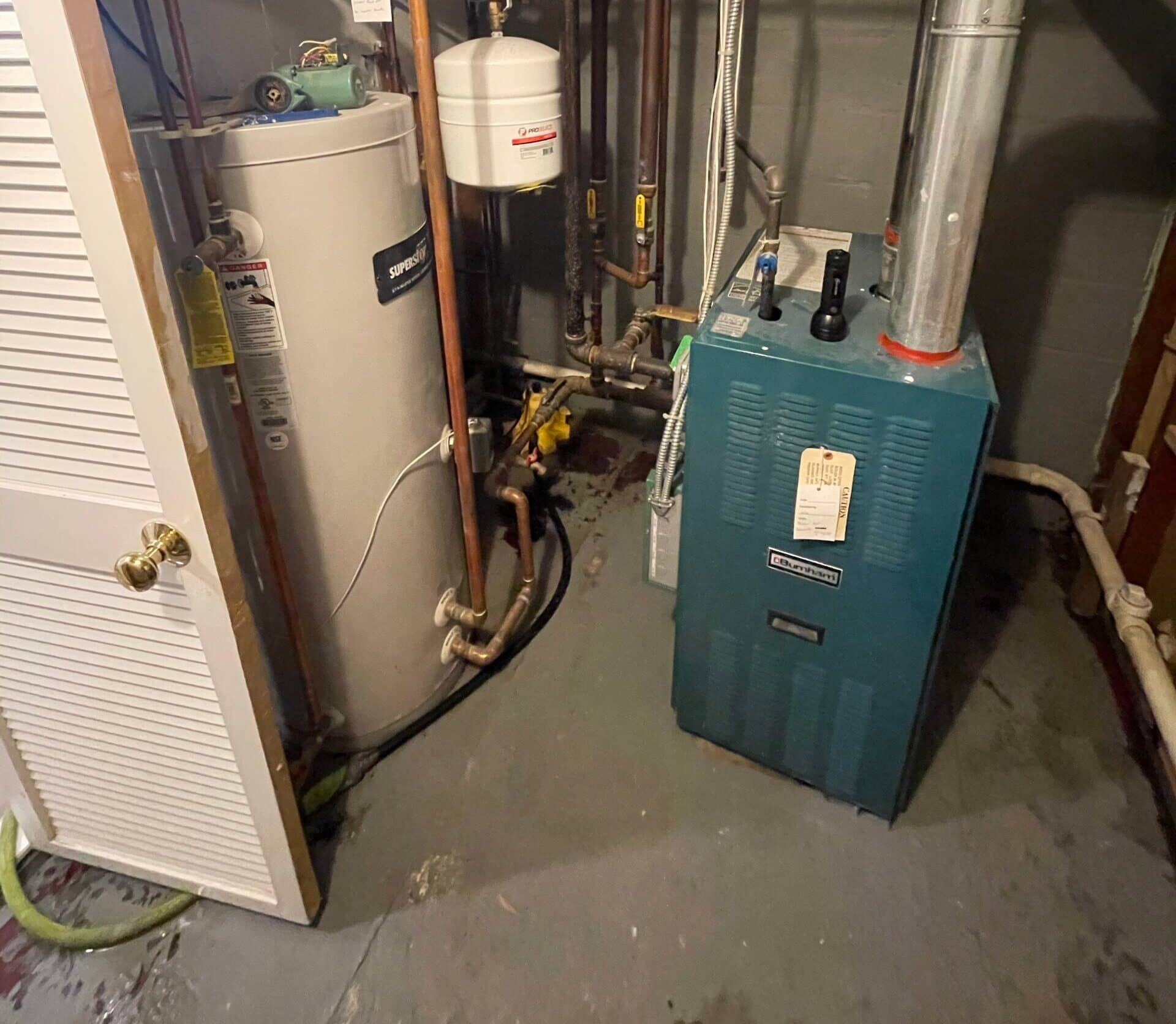When it comes to keeping your home nice and toasty, there a few options worth considering, each with its own pros and cons. From going old school with a solid fuel stove to the luxury of underfloor heating, each brings its own set of charms. If you’re remodelling or renovating, a forced hot water heating system is certainly worth considering. They can offer a fantastic even heat throughout the property without the noise and ‘dryness’ inherent to more traditional systems.
However, as with any major work, they are as filled with compromise as they are with benefits. Let’s take a closer look:
Understanding Forced Hot Water Systems
The most common heating system in the US is still the traditional furnace, where oil or gas is burnt to heat air that is then pushed through vents throughout the house. This is known as a ‘forced air’ system. Others may use electric storage or convection heaters.
Less common here but ubiquitous in many other countries, forced hot water systems instead rely on a network of pipes, hidden behind your baseboards or under your floors, connected to a series of air-fin radiators at one end and a furnace (more accurately called a ‘boiler’) on the other.
Alternatively, rather than radiators, some systems release their heat through the floor (often referred to as hydronic floor heating). Either option is great for providing an even heat through the house without the cold spots that are common with other systems.
Whichever style of system you have installed, electricity usually is used to pump the water from the boiler around your home in a closed loop.
Many more modern systems can also be used to supply your domestic hot water too, saving space and doubling up of efficiency.
Pros Of Forced Hot Water Heating Systems
Forced hot water systems have a number of innate features which make them worthy of consideration if you’re looking to update your heating.
Efficiency and Cost Effectiveness
When it comes to conserving energy (and, crucially, keeping those utilities bills down) forced hot water heating often comes out well above its competitors when heating a whole property.
Thanks to working via radiation, a greater percentage of the energy used is turned into heat for your home in comparison to forced air systems, which can waste up to 30% of what is put in. This means that you’re not paying for energy that you’re not seeing the benefit of.
On the other hand, by this measurement, electric heaters are the most efficient system- all the electricity put into them is turned to heat- but the amount of energy they require tends to be huge in comparison.
As natural gas tends to be vastly cheaper than electricity, the scales still come down on the side of forced hot water systems.
Another handy consideration is that even once your boiler switches off, the radiators will retain heat for a significant period, making the system even more efficient.
Consistent and Even Heat
Thanks to using radiation and pumping water around the system, a forced hot water heating set up (so long as it’s properly maintained) can bring your whole home up to the same level of coziness more efficiently and cheaper than the alternatives.
Even on a room by room basis, radiant heat is less affected by objects than forced hot air or convection heaters.
Quiet Operation
Furnaces can be noisy contraptions. The same is not usually true for boilers.
Thanks to their relatively small size, the pumps used in a forced hot water system are usually whisper quiet. In fact, if you can hear them, something may actually be going wrong!
Air Quality
A serious flaw with forced air systems is that, unless vents are kept scrupulously clean they can push dust, allergens, or even pathogens around your home as air is blown through them. This can play a major role in lowering indoor air quality.
Furthermore, forced hot air produces a ‘dry’ heat which can lead to sore throats, itchy eyes, dried out skin and hair and various levels of irritation.
Forced hot water systems don’t have this issue and don’t affect indoor air quality at all.
Longevity and Reliability
In comparison to forced air systems, forced hot water can last significantly longer, assuming you keep up with the maintenance as required.
A furnace is likely to last you up to 20 years, though many give up the ghost long before this. There are things you can do to extend their lifespans slightly, but usually only slightly.
A boiler based system however could last 30 years if properly looked after with regular servicing.
Cons Of Forced Hot Water Systems
Of course, no system is ever perfect and forced water heating is no different. Whether you opt for radiators or underfloor, there are certain compromises that you’ll just have to accept if you choose to install this kind of heating in your home.
Initial Installation Costs
Thanks to their relative complexity and the need to lay a network of pipes throughout your property, forced water systems tend to be significantly more expensive to install than either electric or forced air systems.
The larger your property, the bigger the jump in cost too.
Maintenance Requirements
With anything involving water comes the risk of leaks developing over time and forced hot water heating is no exception.
Without regular inspections, pipes and radiators can develop leaks which could potentially go unnoticed for an extended period as most of the network is hidden. This brings with it the risk of water damage to your home.
Slow Heating Response
In comparison to both electric heaters and forced air systems, forced water can be relatively slow to heat a room and is certainly less responsive when you change your mind.
As the radiators retain heat until the water in them cools down, turning down the thermostat won’t instantly start to lower the temperature like other comparable central heating systems would (though, as the eagle-eyed amongst you will have noticed, we listed this as a positive too- it really depends on whether you value efficiency or responsiveness more highly).
Complexity of Retrofitting
If you have an older home which was designed around a furnace or electric heating, installing a forced hot water system is a relatively labor-intensive process.
Thanks to requiring the laying of a whole network of pipes, usually under floors and behind walls, it can often be a very disruptive process and is often best left to when you’re undertaking a serious remodelling anyway.
The disruption- lifting floors and cutting walls- that a new installation would require usually means that moving out while the work is done will be necessary, adding significantly to the hassle and costs.
Dependency On Electricity
Even though circulating water, usually heated by burning gas, is supplying the heat to your home, owners of forced water systems are still reliant on electricity to allow them and their properties to stay toasty.
Both the pilot light and pump require a current to function, meaning that when caught in a power outage- most commonly occurring during the exact weather you want your heating working- you may find yourself sitting in the cold and dark rather than just the dark.
Important Considerations Before Installation
Before making a decision, it’s worth weighing up the pros and cons in comparison to alternative systems as outlined above but there are other important factors to consider too:
- Assessment of existing infrastructure: not all homes are suited to radiant heat systems and may require serious retrofitting to make the system viable.
- Local climate and personal heating needs: if the system is only likely to be used for a month or two a year, is it worth spending money on rather than directing those resources elsewhere?
- Cost/benefit analysis: like any work on the home, weighing up the costs of installation vs the savings the new system can bring is always an important consideration. Is spending now worth long-term saving?
Of course, whether or not you decide that a forced hot water heating system is the right fit for you will depend on all these factors and many more- not least of all personal preference.
That being said, in many cases, if you’re considering a major overhaul of your home, the efficiency and long-term savings offered by forced hot water can often tip them over the edge into being the right choice.

